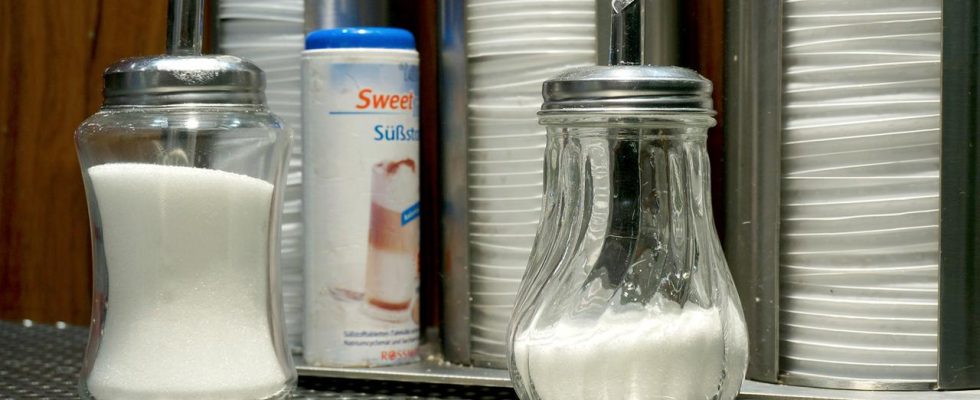Sugar substitutes in drinks and foods promise a sweet taste without calories. But many of them are difficult to break down in wastewater – and end up in the environment and our drinking water.
Cola, puddings, chewing gum – sweeteners are everywhere. There are always doubts as to whether this is so good for your health. So warned the World Health Organization (WHO). last year from using them in diets. However, fewer people are probably aware that sweeteners can also be bad for the environment.
The water supplier and operator of the city drainage system “Hamburg Wasser”, for example, takes a critical view of the substances. 2018 and 2022 has that Company campaigns drove to promote the avoidance of sweeteners. Especially those that are not biodegradable.
Just as sweeteners have no calories for humans because we cannot break them down in our bodies, many of these substances cannot be broken down by microorganisms either.
Sweeteners end up back in drinking water
This in turn also affects us humans, explains environmental scientist Thilo Hofmann from the University of Vienna. “Now an interesting cycle begins. In many cities in Germany, but also around the world, river water is used to infiltrate into the subsoil and then be extracted again as groundwater and fed into the drinking water pipe,” he says.
This is the case, for example, throughout the Ruhr area and also in cities like Berlin. Ultimately, substances that are not removed from wastewater end up back in our drinking water. This also applies to artificial sweeteners.
Enrichment over generations
The concentrations in drinking water and also in wastewater have so far been very, very low. According to current studies, the sweeteners in these quantities cannot harm humans or animals. However, environmental scientist Hofmann is still critical: “With many substances, people first say: It’s safe, it doesn’t matter. And later you realize that they have an effect,” he says.
In addition, if the sweeteners are not broken down, they accumulate. And could become a problem for future generations. High concentrations of sweeteners are harmful to many aquatic organisms.
This is what the “Hamburg Wasser” campaign is trying to point out, says Ingo Hannemann, Technical Director: “The crucial thing is that these substances simply do not belong in the environment. They would ultimately accumulate in the ocean at some point because the water from the rivers, the Elbe, too, will end up in the North Sea at some point.” In the long term, this would lead to more and more sweeteners here too.
Tracer trail in the water
The fact that the substances are so poorly broken down by microorganisms is also documented by a research approach by scientist Hofmann and his colleagues. You have in one study The sweetener acesulfame K is used as a so-called tracer. “I once called it a tracer because they have a trace of the wastewater in the drinking water. So with such a substance you can evaluate how large the proportion of wastewater actually is in our drinking water,” says Hofmann. Sweeteners can also be an indicator of other undesirable substances, such as medication residues.
The study also found that the sweeteners in the groundwater did not just come directly from food and drinks. The substances are also used in animal fattening. Piglets, for example, are given substitute milk with sweeteners to wean them from their mother’s milk more quickly. “In our study, we observed some groundwater measuring points near pig farms, where we detected extremely elevated concentrations and sweeteners in the groundwater,” says Hofmann.
Call for renunciation
“Hamburg Wasser” is therefore calling for a rethink by consumers, but especially by industry: “If there are easily degradable substances, for example stevia, then manufacturers could also use such preparations,” says managing director Hannemann.
However, Thilo Hofmann from the University of Vienna does not think this approach is far-reaching enough. “I would go one step further and say: This is not a reasonable replacement either. It is better to eliminate sweeteners from your diet as much as possible.” He finds it particularly problematic for children. This would mean that children would get used to a particularly sweet taste without there being any benefit to their health. “For children, I would almost go so far as to actually ban it,” says Hofmann.

